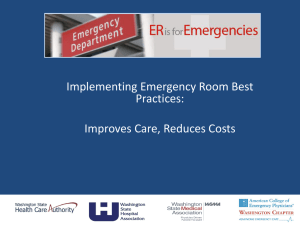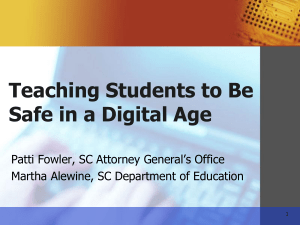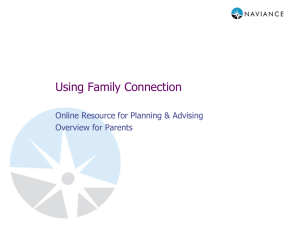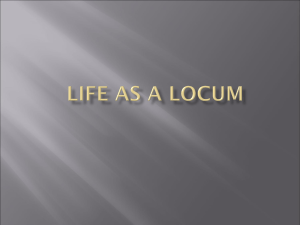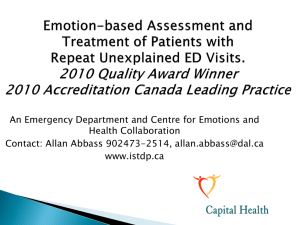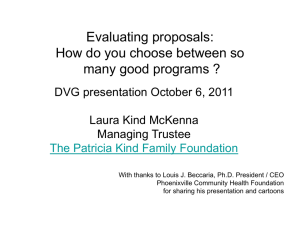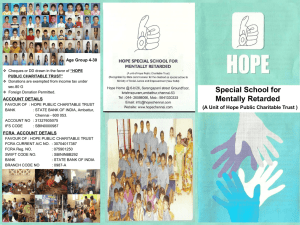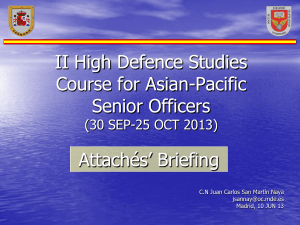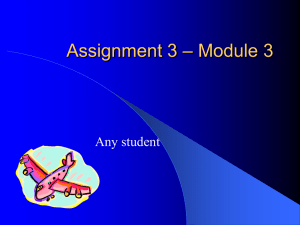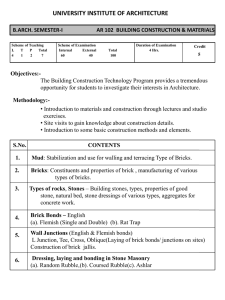A Pathway to Success: How Student & Academic Services can meet
advertisement
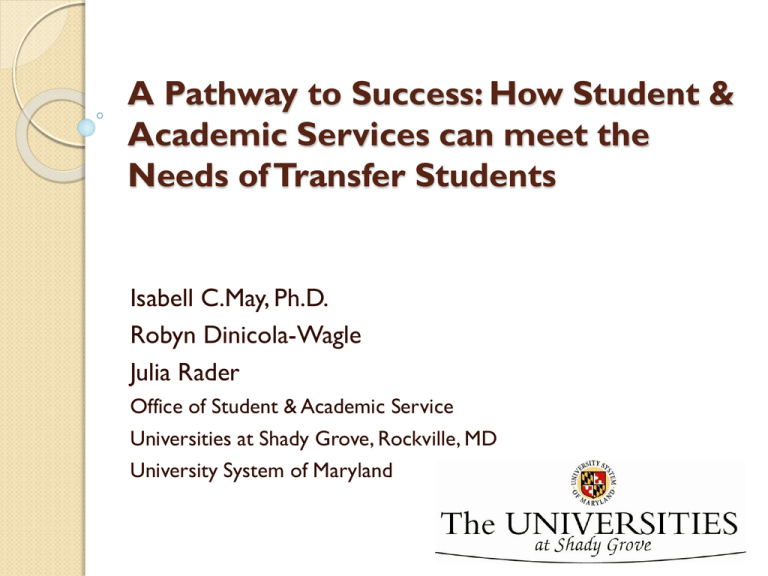
A Pathway to Success: How Student & Academic Services can meet the Needs of Transfer Students Isabell C.May, Ph.D. Robyn Dinicola-Wagle Julia Rader Office of Student & Academic Service Universities at Shady Grove, Rockville, MD University System of Maryland Universities at Shady Grove In 2000, the University System of Maryland (USM) establishes the Universities at Shady Grove as a multiinstitutional partnership to offer upperlevel daytime undergraduate programs Articulation agreements with Montgomery College open the pathway to 14 undergraduate daytime degree program. Universities at Shady Grove Today, more than 70 undergraduate and graduate program are offered from nine of the eleven degree-granting institutions within USM. Total number of degrees awarded over the 10 year partnership is more than 3,000. Universities at Shady Grove Full service campus serving students from all partner institutions Exclusive focus on establishing a supportive culture for transfer success Highly diverse campus Other/Nonreported, 9% Hispanic, 12% International, 6% Asian, 16% African American, 22% White, 35% Ethnicity, Daytime and Evening undergraduate students, Fall 2009 On-Stop Shop Model Three service centers within Student & Academic Services ◦ Center for Academic Success ◦ Career & Internship Service Center ◦ Office of Student Service Planned fourth service center ◦ Mental Health Counseling Center Meeting the Needs of Transfer Students Close collaborative partnerships with partner institutions (4-year schools) Comprehensive service menu with customized services across all three service centers Clear articulation agreements and MOUs with 2-year colleges in the surrounding area Financial support for transfer students (counseling on Financial Aid & Scholarships) Partnerships with local businesses Programming Initiatives Mitigating transfer shock/rigor of upperdivision coursework Summer Preparation Program Leadership opportunities Pathway beyond graduation Mitigating Transfer Shock/Rigor of Upper-Division Coursework Collaboration by all three service centers for an orientation geared towards transfer students needs ◦ Introduction to available resources designed to mitigate “transfer shock” ◦ Emphasis on skills needed to be successful to meet the rigorous academic curricula in upper-division schoolwork ◦ Necessity for professional development and extra-curricular experience to be marketable in the competitive job market Summer Preparation Program Focus on Writing in the Disciplines Mathematical Reasoning Skills Academic Professionalism Focus on Leadership Development of internship tracks with local business in relevant fields (e.g. biotechnology, healthcare, and information technology) Development of leadership certificate for students at USG Academic/Internship credit for students who work with other peers in academic areas ◦ Guided Study Sessions (GSS) ◦ Writing Fellows ◦ Research Pathway Beyond Graduation Developing an Alumni Network Preparation for graduate/professional schools ◦ GRE/PCAT/MCAT Preparation ◦ Personal Statements/Gradaute Admissions Essay Center for Academic Success (CAS) Geared towards the needs of transferring students Peer support (content focus, modeled after Supplemental Instruction; writing focus, modeled after writing fellows programs) Professional consultants Writing Academic Coaching Workshops that focus on enhanced learning techniques In-class Out-of-class Classes used for Data Analysis (Spring 2010) NURS 405 ◦ School of Nursing, University of Maryland, Baltimore (UMB) ◦ Online class, juniors ◦ 6-8 page analytical paper on technology in nursing, using peer-reviewed and internet sources WRTG 394 ◦ Robert H. Smith School of Business, University of Maryland, College Park (UMCP) ◦ Face-to-face class, juniors ◦ 8-10 page business report with extensive research Forensics ◦ Multi-institutional (Psychology, University of Maryland, Baltimore County; Criminology & Criminal Justice, UMCP; Nursing and Pharmacy (PharmD), UMB) ◦ Face-to-face class; some juniors, mostly seniors, graduate students ◦ 8-10 page research paper; 2 draft due before final paper; intervention focused; peer-reviewed research Mean Grades per class 100 1 or more visits, 91 90 1 or more visits, 92 1 or more visits, 93 No visits , 89 No visits , 87 No visits , 75 80 70 60 50 40 30 20 10 0 NURS 405 WRTG 394 Forensics Mean grade for all 3 classes combined 92 92 91 90 89 88 87 87 86 85 84 1 or more visits No visits Retention/GPA Study by USG Partner Institution Comparison of students who came to CAS for one academic year (fall 08-spring 09) with a random group from the nonUSG student population Even though the average GPA was higher for the non-USG students, the retention rate for the USG students was higher than that for the non-USG students. Grade Comparison, Accounting Class, Fall 2010 Semester Correlation of visits per academic year (fall 2010-spring 2011) with academic performance (all students) 80 79.5 80 79 78.5 78 77.5 77 77 76.5 76 75.5 9 or more visits per academic year 8 or less visits per academic year Grade Comparison, Accounting Class, Fall 2010 Semester Correlation of visits per academic year (fall 2010-spring 2011) with academic performance ◦ Only transfer students from local 2-year colleges 81 80 81 79 78 77 76 76 75 74 73 9 or more visits per academic year 8 or less visits per academic year Next Steps for Research Longitudinal Study ◦ GPA ◦ Graduation/Retention Rates ◦ Admission to Graduate School/Job placement within field of study
